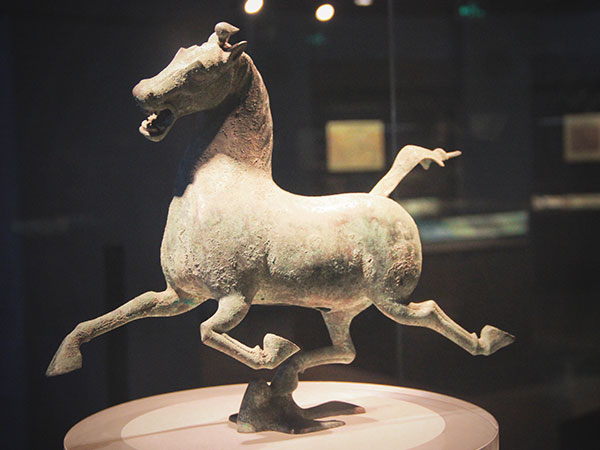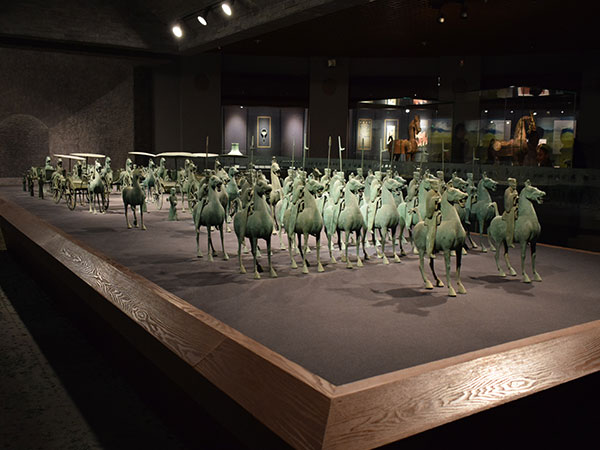Gansu Provincial Museum was built after the founding of the People of Republic China. Although it is young among the various museums in China, the collections in this place still can give visitors very deep impressions.

Gansu Provincial Museum covers more than 6.6 Hectares of land and has a total floor space of 18,000 square meters. Built in Russian architectural style, the museum is shaped like the letter “E”. This is one of the best sights in the city. The museum has an excellent selection of exhibits relating to Gansu and
the Silk Road. The collections include an extensive range of Neolithic pottery, dating back between 7,000-500BC.

